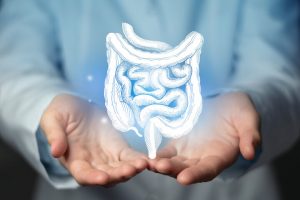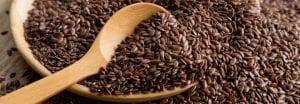
The composition of the gut microbiome during pregnancy has long-term effects on the growth and development of stem cells in offspring, report researchers in the journal Cell Stem Cell, published by Cell Press. Treating pregnant mice with a common gut microbe resulted in more active stem cells in both the brain and intestinal tract of the offspring. As a result, the offspring were less anxious and recovered more quickly from colitis, and these differences were still apparent at 10 months of age.
Interaction Between Gut Microbes and Fetal Stem Cells
Exposing the offspring to the microorganism after birth did not lead to the same stem cell activation. The team showed that the microorganism influenced stem cell growth by altering the abundance of other gut microbes and increasing microbial production of metabolites that cross the placenta and induce stem cell growth and proliferation. “This is a major advance in the development of microbiota-based intervention strategies to improve child health,” says senior author Parag Kundu of the Institut Pasteur in Shanghai.
The researchers treated the pregnant mice with Akkermansia muciniphila, a common gut microbe whose low abundance has been linked to obesity, diabetes and liver steatosis. Previous studies have shown that the maternal microbiome is associated with the offspring’s immunity, metabolism and neurodevelopment, but how gut microbes influence these processes is unclear. Because stem cells are responsible for controlling growth, development, and organ maturation in early life, Kundu’s team decided to investigate whether there is an interaction between gut microbes and fetal stem cells during pregnancy.
To do this, they treated pregnant mice with Akkermansia muciniphila and found that prenatal exposure had major effects on the stem cells of the offspring. The offspring of mothers exposed to Akkermansia had more stem cells in their brains and intestines, and these stem cells were also more active than the stem cells of mice not exposed to Akkermansia in the womb. These changes in stem cell development had long-term effects on the behavior and health of the mice. In behavioral tests, the offspring of mothers exposed to Akkermansia were less anxious and more curious. They also recovered more quickly from chemically induced intestinal inflammation because the regeneration and turnover of intestinal epithelial cells was faster. Treating newborn mice with Akkermansia did not have the same effect on stem cell development as prenatal exposure.
When they exposed the offspring to postnatal Akkermansia, the researchers saw some differences in differentiation, but not the entire phenomenon they observed when the mothers were exposed to Akkermansia during pregnancy. Therefore, they believe that this period of pregnancy is crucial, and that microbiome changes during this time can truly work wonders. The effect appears to be specific to Akkermansia, as treating pregnant mice with another gut microbe, Bacteroidetes thetaiotaomicron, had no effect on the development of the offspring’s stem cells. However, Akkermansia was only able to exert its effect in the presence of an otherwise complex gut microbiome.
Translating These Findings to Humans is Crucial
The team showed that Akkermansia changed the abundance of other types of gut microbes and stimulated other gut microbes to become more metabolically active in order to produce larger amounts of metabolic products such as short-chain fatty acids and amino acids. Unlike gut microbes, these metabolites can cross the placenta and are known to stimulate cell growth and proliferation via a protein called mTOR. When the researchers treated pregnant mice with both Akkermansia and rapamycin, a chemical that inhibits mTOR, they could no longer detect any effects on the stem cells of the offspring. In the future, the researchers want to further investigate how microbiome metabolites affect stem cells.
To test whether this phenomenon also occurs in humans, they plan to create “humanized mice” by transplanting human microbiota into mice, and to study human cohorts that take probiotics during pregnancy. Promoting child health is a major challenge worldwide, and the translation of these findings to humans is crucial.
Prenatal Health







